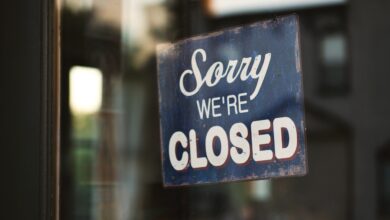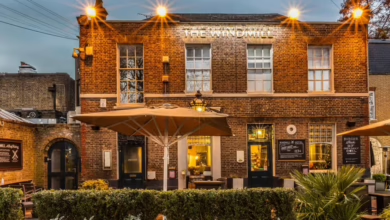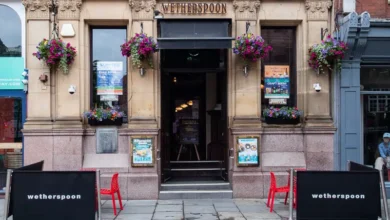The forgotten effect of insolvencies on a premises licence
In recent weeks, the UK nightclub scene has made headlines after it was revealed that Pryzm owner is allegedly mulling restructuring options. But what happens to a licence when a late night operator goes insolvent? Sarah Taylor, licensing partner at Keystone Law, explains why it’s important for businesses to be proactive with their licences in case of an insolvency event

Register to get 1 free article
Reveal the article below by registering for our email newsletter.
Want unlimited access? View Plans
Already have an account? Sign in
Can you explain how an insolvency event can cause a premises licence to lapse, and at what point in the process does this typically occur?
Before there’s any sign of going into insolvency, I think it’s important for operators to consider not just their wider business, but specifically their licences because a lot of operators and also a lot of insolvency practitioners don’t realise that as soon as an insolvency event happens that licence lapses immediately. And it’s important to be mindful of that trigger point because at that point, when the licence has lapsed, it’s not in effect anymore and any licensed activities that are taking place are technically unauthorised.
So what I generally recommend, for example in the case of an administration, is asking the insolvency practitioners to notify us once the court has approved the appointment of the administrators and to get in touch as soon as possible, because at that point we have to transfer the licences to ensure that there is no pause in the premises trading.
What are the common misconceptions among operators regarding the status of a premises licence during financial difficulties?
I’ve had lots of misconceptions, particularly in relation to an administration because I think there’s a perception that since the company still continues to trade, and it is therefore still operating, the licence is not affected. But of course, that’s not the case because as soon as the insolvency event occurs, technically the licence lapses.
Another big misconception is that if the licence doesn’t authorise the sale of alcohol then it’s not affected when the operator becomes insolvent. For example, operators that sell late night refreshments, hot food and drinks that are sold between 11pm and 5am, still require a licence even if they don’t sell alcohol and if the business becomes insolvent, again, the licence lapses.
Could you provide examples of scenarios where businesses holding licences might face challenges during an insolvency event?
There’s a 28-day window, within which you’ve got to either transfer the licence to an active company or apply for what we call an ‘interim authority notice’, which effectively buys you three months to then be able to transfer the licence to keep it live.
As an example, I once had a restaurant that was in central London and it was located in what we call a ‘cumulative impact zone’. A cumulative impact zone is basically an area where the council designates that there are enough licensed premises and therefore, there’s a presumption that they
either won’t grant any more new licences or they won’t grant any variations, for example, for extended hours. This restaurant was in the middle of Westminster, where 20 years ago, later licences were granted more easily but now it’s very difficult in comparison. And in that case when I was instructed, 35 days after the insolvency happened, the deadline for the licence to be transferred had passed, and we weren’t able to resurrect it in any way.
The only alternative in that case is to make a new application, but if the localitiy has changed, you may not obtain the same licence you had before.
Why do you think it has become harder for businesses to obtain licences?
It’s just that the whole licensing landscape’s changed. I think part of it is because a lot of residential accommodation has been built in city centres, which causes a conflict with local operators and the noise that licences premises sometimes generate. Sometimes we get issues with allegations of crime and disorder linked to licensed premises too which can prompt objections.
Also, the volume of licensed premises is the reason why lots of councils have introduced cumulative impact zones where there’s this assumption that no new licences or variations will be granted. And those cumulative impact policies are based usually on the police crime statistics and what’s happening in a particular area. And that can change over time, which is why if a restaurant or nightclub that’s been there for 20 years becomes insolvent and loses its licence, it can be difficult to get the same licence back if the landscape has changed in that timeframe.
What legal implications does the lapsing of a licence carry?
If it lapses and it has not been transferred within the 28 days or if there has not been an application for an interim authority notice, then the licence has effectively gone forever. And if you continue to trade and provide a licence for activities, then you are doing so without the authorisation of a licence, which is a criminal offence. What usually happens is that the council will take enforcement action against you, but they can also prosecute and fine you for that as well.
Instead, if the licence is transferred, the premises can continue trading as normal. So the solution to all of this is to be proactive from the start. If operators are thinking that the books look like they’re not balancing, and they think that there’s a likelihood that their finances will be in difficulty, and that an insolvency event is likely, I’d advise them to get legal advice and also advice from an insolvency practitioner as soon as they possibly can. And the same applies to individuals as well — if they become bankrupt or they lose the capacity to be able to hold the licence, a transfer becomes necessary. Once that’s done, there’s no interruption to the way that the business can operate as the licence has been safeguarded.
Lastly, what specific strategies or best practices do you recommend for businesses to address potential issues with their premises licences in times of financial distress?
I would recommend talking to their legal practitioners as early as possible. If the operators of the premises own other companies, I think it’s important to explore where they could potentially transfer a licence to. If they don’t have an alternative company available, it’s worth giving some thought to setting up another company that they can transfer a licence to. If they can’t do that, maybe it’s worth looking at individuals within the business that they could transfer the licence to temporarily.
In the past, we’ve had situations where the licence was transferred to the insolvency practitioners for a period of time to keep it active. However, quite often, the insolvency practitioners don’t want the responsibility of holding that because obviously, if something happens in breach of either conditions or the timings on the licence, then they can be liable to prosecution as well. So that’s an absolute last resort.
My stellar advice would be to be proactive, look at the situation early on, if possible, and see what the options are — to talk to the insolvency practitioners, talk to a licensing specialist as far in advance as possible, because that gives time to then be able to plan where the licence can be transferred to in order to keep it active.







